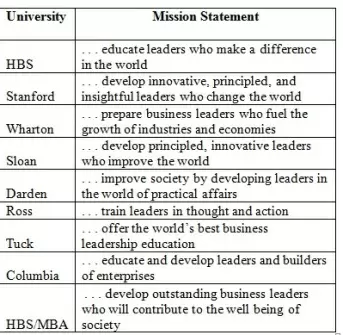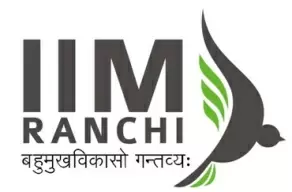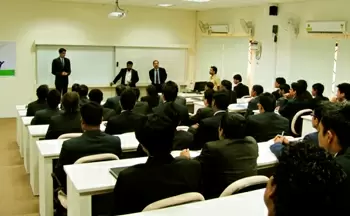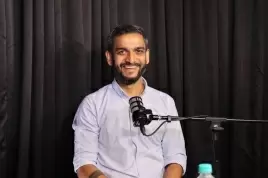A unique MBA teaching model that is useful to business, government and society

03-August-2012
Vol 3 | Issue 31
MBAs from top b-schools in India and the US are seen as aggressive, arrogant, unethical, materialistic and self-centered. It is no wonder that the enrolment in MBA programs all over the world is declining.
Several third tier b-schools in India are closing down due to want of students. What is ailing business education? This article highlights the maladies and suggests some remedies for the survival of MBA.
It is paradoxical that the business schools today produce graduates who possess none of the values that they profess in their mission statement. See table below for the noble values expressed in the mission statements of leading business schools in the US.
 |
Note the phrases like `make a difference’, `insightful leaders’, `principled’, `improve society’, and `contribute to the well-being of the society’.
However look at the kind of leaders they have produced: Jeff Skilling, Kirk Shelton, Rajat Gupta, Samir Barai, Eugine Potkin. No special prize for readers who guessed it right. All are Harvard Graduates and were involved in scandals in Insider trading. You can get more such stories by visiting the site http://jadeluckclub.com/top-10-from-harvard-to-prison-infamous-students-and-alums-invited-to-reunion/.
The greed of MBAs, particularly the ones specializing in Finance, was attributed as the main reason for pushing the world economy into recession.
Criticism of MBAs started way back in the 80s itself. The following observation by Theodrelevitt is worth reading: ‘We have built a weird, almost unimaginable design for MBA-level education’ that distorts those subjected to it into ‘critters with lopsided brains, icy hearts, and shrunken souls.’
A study by the Academy of Management Learning and Education of 5,300 students in the U.S. and Canada found that 56% of MBAs cheat in examinations. It was reported, “MBA students cheat on the GMAT so that they can get into top B-schools. MBA students willingly admit to cheating when they are in B-Schools, and MBA students obviously act amorally and immorally once they are out of the B-School.”
When I took over as the Director of IIM Ranchi in November 2010, I had two options; either create yet another IIM producing the western style MBA or address some of the problems and concerns I have expressed in the preceding section.
Everything starts with the right mission statement. After a lot of deliberations, we arrived at the following mission statement: To attain thought leadership through erudite fusion of `western processes and technologies for knowledge creation, dissemination and application’ and `the wisdom of the east’ for the holistic development of students, businesses and the society at large.
The following are the core values that we try to impart in our students.
• Humility, honesty and hard work for individual and corporate success
• Holistic development of individual, institution and the society at large
• Harmonious co-existence with the environment and the society at large.
Then I went on to create the logo for the Institute.
 |
The bird in the logo is a crow. We did not choose an Eagle that is arrogant, a peacock that is proud or a Seagull that is foreign to us. We chose the crow because it has several positive traits that the Institute stands for.
Crow is an epitome of community living and sharing and caring of each other which are the ethos of IIM Ranchi. It is an aerial scavenger that cleans up the earth by eating carcases. Crows in many cultures are the keepers of knowledge as nothing escapes their keen eye-sight. Crows are very adaptable and can live in different climatic conditions.
The bird has been created in a manner that it looks like a forward arrow, taking everybody along together for the flight. The three green strokes symbolize the community.
Our tagline – translated into English it means: multifaceted (holistic) development is to be attained - symbolises the vision of the Institute to work together to bring about change and success not only to self, but also to the entire community.
I came across the following anecdote recently. Three old men went to see God. The first old man, an American, asked God when his country will come out of recession. "100 years," God said. The American started weeping profusely. "I will not live to see that day".
The second man, a Russian asked God, "When will my country become prosperous?" "Fifty years," came the reply. The Russian too started weeping profusely. "I will not live to see that day".
Finally an Indian asked God, "When will my country become corruption free?" God started weeping profusely. "I will not live to see that day.”
Not that we can eradicate corruption from the country; but we have a moral responsibility to inculcate right values in the young minds.
I also love to quote this anecdote about an American visiting India and not finding a single Indian.
An American visited India and went back to America where he met his Indian friend who asked him, “How did you find my Country?”
The American said it was a great country with solid ancient history and immensely rich with natural resources.
The Indian friend then asked, “How did you find Indians?
The American asked, “Indians??Who Indians? I didn't find or meet a single Indian.”
The Indian asked, “What nonsense? Who else could you meet in India then?”
The American said, “In Kashmir I met a Kashmiri, in Punjab a Panjabi, in Bihar a Bihari, in Tamil Nadu a Tamilian... Then I met a Hindu, a Muslim, a Christian, a Jain, a Buddhist, and many others… But not a single Indian did I meet.”
Basically, we have lost the spirit of Indian-ness that we had during the independence struggle. During the Indo-China war, it got revived a bit; but we have gone back to our divisive thinking once again.
We have no appreciation for the culture and the heritage of this great country. Hence it is our duty to rekindle the love for the country.
 |
|
IIM Ranchi is attempting to produce Masters of Business Servants
|
While the Western world has given the scientific approach to explore the physical world, East has a rich tradition of exploring the inner (spiritual) world. While I fully acknowledge the contributions of the Western world in terms of improving the overall living standards and brining comforts to the common man, I have issues with the extreme use of cause-effect model in every aspect of life and seeking instant gratification.
Though there are material comforts, human race is intrinsically unhappy and is looking for anchors. The scientific approach is not the be all and end all of life. For a holistic life, the students should be given inputs on inner development that will serve as an anchor in times of difficulty.
I have been doing this in all the places I have taught in the last 12 years. Some students come back and tell me that the one thing that saved their lives in crisis was the course on Inner Development. Be it a divorce, loss of job, an accident or heath issues, it is this course that helps them calmly tackle the situation.
We need to also sensitize students to the sufferings of our less fortunate brethren who are grappling with poverty. Social sensitization has to be an integral part of the curriculum.
As a first step we have introduced the following compulsory modules in our curriculum.
• Indian Culture
• Yoga and Meditation
• Indian Ethos
• Inner development
• Rural Immersion
• Year-long Social Project with NGOs
Consequently we are creating an Un-MBA who is humble, honest and hard working. I am not producing leaders who are arrogant, authoritarian and power hungry. I am producing Master of Business Servant, who will serve the company and society.
We are not producing Industry leaders but servants. If there are Civil servants, why not we have business servants.We are sending our students to the industry as change agents and catalysts who will question industry practices that are harmful to the society and the environment.
They will teach the businesses that they are an integral part of the society and have a role to play in the development of the stakeholders and people around them. While there is no harm in making a surplus for the growth of the business, excessive exploitation of employees and consumers will only result in strikes, violence and murders.
All these do not mean that we are throwing the Western model to the wind. We have identified Business Analytics and neuro Management as our thrust areas.
We need to prepare students for the future. My firm belief is that biological and neuro sciences will play a key role in the future. We need to teach courses on these areas to our students.
What we are attempting is a fusion of the East and the West. We hope to evolve a model that is unique and is useful to business, government and the society.
The author is Director, IIM, Ranchi
















